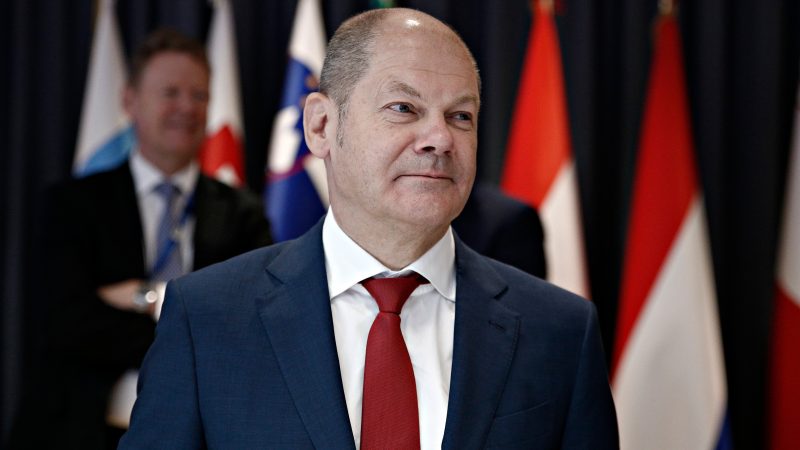
Germany’s socialist party, the Social Democratic Party (SPD), last week chose its candidate to replace Angela Merkel as Chancellor. Olaf Scholz has his admirers within Labour, but would a government led by him be an ally for a transformational Labour Party? He has been Germany’s minister for finance since joining the government in 2018 and has a reputation as a fiscal hawk – making him more a George Osborne than an Alastair Darling. He enthusiastically adopted the ‘schwarze Null‘ policy of his right-wing predecessor. Schwarze Null, or ‘black zero’, is the policy of keeping the government budget in the black and with zero budget deficits. By contrast, Labour’s Gordon Brown backed deficits to smooth the economic cycle and, like his successors, borrowing for investment.
The pandemic pushed the German government to loosen the purse strings. It temporarily suspended its borrowing rule, authorised up to €150bn of new debt and backed a plan to allow the EU to borrow €750bn to support recovery from the economic impact of Covid-19. Scholz’s reputation rose as he took credit for this change in policy, which may have helped him win his party’s nomination. However, his past tells a different story. In his first budget in May 2018, Scholz set out plans to maintain a fiscal surplus throughout the 2019-2022 budget period and to aim for a surplus of 1% of GDP.
Even international commitments were sacrificed to the goal of budget surplus. Development aid was frozen at 0.5% of GDP. In government, Labour hit the United Nations’ target of 0.7%. Defence spending, which was due to reach 1.3% of GDP in 2019, would be cut back to 1.23% the following year. This, despite a NATO target of 2% of GDP, which Labour met in government and has supported in all recent manifestos. In essence, Scholz was allowing Germany to free ride on collective security and international development funded by the efforts of others. The Financial Times’ verdict was scathing: “It would be better for the world, in other words, if Germany put its surpluses to work at home, where there are good targets for investment. That would have a pleasant side effect, too: it would make Germany a better place for Germans to live in.”
Scholz is not an outlier in the SPD. Germany’s social democrats have been in government for 11 of the last 15 years. When the red-green coalition of Gerhard Schröder lost power in 2005, the SPD remained in government as the junior party in coalition with the country’s conservatives from 2005 to 2009, and again from 2013. During that time, German economic policy has been characterised by a beggar-thy-neighbour approach, which has resulted in a massive current account surplus. Such a surplus is a sign that the country’s exchange rate is too low. Normally, beggar-thy-neighbour is achieved by lowering the exchange rate to attract demand from overseas. But how can Germany, sharing the Euro, pursue this strategy? The answer lies in the real exchange rate that takes account of inflation and which Germany can still steer. To lower the real exchange rate, it needs to run a lower rate of inflation than its trading partners. Deflationary policies began with repressing wages, which dates back to the Hartz IV welfare reforms of the Schröder era.
Where Labour promotes a ‘high-wage, high-skill, high-productivity’ approach, restraining wages remains a centrepiece of the German economic model. Its balanced budget policies are designed to keep inflation suppressed, the real exchange rate low and the current account surplus high. It is not just German workers who suffer from this policy. Its impact is felt across the eurozone. The Euro remains fragile and needs a rebalancing to bring real exchange rates into line. German disinflation forces other eurozone countries to pursue deflationary policies themselves – in most cases resulting in austerity policies.
Labour might hope for an alliance with a victorious Chancellor Scholz, yet the record of the SPD in government does not inspire confidence. It may have been in coalition but it cannot escape responsibility for the policies enacted. Free riding in NATO, beggar-thy-neighbour economics, low investment and wage repression at home and austerity in the eurozone are not models for a future Labour government.




More from LabourList
Government abandons plans to delay 30 local elections in England
‘The cost of living crisis is still Britain’s defining political challenge’
‘Nurses are finally getting the recognition they deserve’